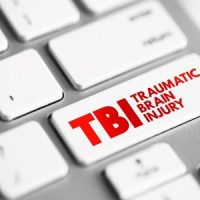Traumatic Brain Injuries Can Cause a Variety of Vision Impairments

When people hear the term “traumatic brain injury”, they often imagine symptoms like headaches, confusion, dizziness, nausea, and even unconsciousness. These are not, however, the only kinds of problems that blunt force impacts to the skull can cause. Many, for instance, suffer from vision impairments that have significant consequences on their day-to-day lives.
Symptoms of Vision Impairment
Many accident victims who suffer from brain injuries report experiencing blurred vision and sensitivity to light and motion after their accidents. This makes sense when you consider the fact that any type of trauma to the brain can disrupt that organ’s ability to communicate with the eyes, which in turn, will affect vision. Other vision impairments that can affect TBI victims include:
- Double vision;
- Eye movement dysfunction;
- Problems tracking movement;
- Loss of peripheral vision;
- Visual memory loss, or the inability to remember what a person just saw or read; and
- Problems transitioning between things that are nearby and those that are far away.
Any one of these problems can make it difficult, if not impossible, to work, study, drive, and complete other daily tasks. Unfortunately, many TBI victims struggle with multiple vision impairments, sometimes for months or years after an accident.
Delayed Vision Impairment
TBI victims don’t always recognize that they are suffering from vision impairment right away. This could be because a person is suffering from even more serious injuries and so fails to notice problems tracking movement or another visual impairment. In other cases, the symptoms may be delayed by hours or a few days. This is why it’s so important for accident victims, especially those who strike their heads upon impact, to see a medical professional right away. Those who have been diagnosed with a TBI should also reach out to an ophthalmologist for treatment of any TBI-related vision symptoms.
Chronic Visual Dysfunction
Unfortunately, not all vision impairment caused by TBIs is repairable and many patients suffer with chronic dysfunction. In these cases, a patient could require a visual rehabilitation plan, in addition to cognitive, occupational, and physical therapy. Such a plan could include vision therapy that helps improve visual dysfunction, vestibular therapy, and the use of prescription lenses. These treatments and rehabilitation methods can, however, be expensive, which can be frustrating for those who weren’t at fault for their injuries in the first place. Fortunately, accident victims who can prove that someone else’s negligence caused their TBI and subsequent vision impairment, can recover compensation for these kinds of treatment expenses.
Did You Suffer an Accident-Related TBI?
To speak with an experienced Savannah traumatic brain injury lawyer about recovering compensation for your TBI-related vision loss, please call Shiver Hamilton Campbell at 404-593-0020 today. We know how expensive, stressful, and traumatizing it can be to sustain these kinds of life-altering injuries and will put your experience and resources to work in your case to help you recover the compensation that is rightfully yours. Feel free to set up an initial case review with our legal team at your earliest convenience.
Sources:
pubmed.ncbi.nlm.nih.gov/29488253/
pubmed.ncbi.nlm.nih.gov/30470420/


